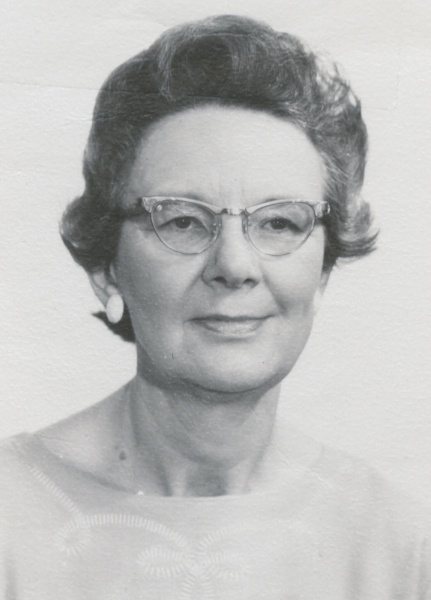To my knowledge, Marguerite Miller was the only Deaconess officially disjoined by the Order because she became Ordained. “It was AGREED that Margarite (sic) Miller be disjoined from the Order since she was ordained by Manitoba Conference June, 1949.”[1] At the time, Deaconesses were not considered to be in ministry and there would have been no reason to perceive a continuity from her Deaconess calling to her new vocation. The diaconate was a lay order and both officially and unofficially it had a lower status in the church’s hierarchy of valuation. Marguerite held this view herself, certainly in her later years. She expressed readily her opinion that the diaconate should be done away with. She argued that there was too much incongruity in the current theological understanding of Diaconal Ministers as members of the Order of Ministry and the practice of Diaconal ministry. She felt that Diaconal Ministers were functioning as Ordained Ministers. She was not pursued by an argument that function was not the only way to distinguish the specificity of Diaconal and Ordained ministries.
Marguerite was not easily pursued on many ideas. She had a strong personality and was assertive. This is often the case with women who are pioneers in a man’s world. She was one of the first ordained women in the United Church, in a time when acceptance of women in that role was not heartily embraced. She would have met with significant amounts of discrimination, subtle and not so. She broke ground so others could have an easier journey.
When she died her family donated her papers to the United Church archives in Winnipeg. Among the papers is the transcript of a lengthy oral history interview. Marguerite was a very interesting character, and a thorough examination of her life would be a worthy project. (See Marguerite Miller Fonds)
This biography draws heavily on the autobiography Marguerite wrote at the time of her retirement in 1983, and I have left it in the first person.
“I am a part of all that I have met” was said by some famous person, whose name escapes me. That is true for me, for many people have been involved in my development to the present “Me”.
A Manitoba product: born into a farm family, the favorite sister of four brothers and raised in the rural community of Starbuck, with schooling at Starbuck Consolidating School for grades I to XII. It was a good beginning.
Further education was taken at United College Deaconess training which was really Theology I and II, with a diploma. [Marguerite was the last graduate of United College Deaconess Program (1939). See Sherri McConnell’s paper Training Deaconesses the Manitoba Way.] Being a Deaconess led to being on staff [as a dietitian] of the Indian Residential School at Norway House and at Portage la Prairie under the Home Mission Board of The United Church of Canada. [See a letter written to the Brandon Sun after an article appeared which was very critical of the staff at the schools.]
[Marguerite worked long enough as a dietitian to decide she wanted to be a teacher.] On a leave of absence from the Deaconess Order I attended the old Normal School on William Avenue, Winnipeg. I have lived in several communities in the province. Teaching took me to Newton Siding and Birds Hill.
Then as an undergraduate attending United College, I served as a summer student on the Edrans Field (near Neepawa) … After my Arts degree and Theology III, I was ordained in June 1949 and placed by the settlement Committee on the Kenville Charge in the Swan River Valley …[which] later became Benito-Kenville as it is today. It was a good place to begin. (Photo at 50th Anniversary of the charge in 1999.)
Accepting a call to Foxwarrren, I came ‘over the mountain’ to that charge and completed the integration of Zion and Bayfield congregations into one with Westminster United Church, Foxwarren; and personal growth continued. (Photo to the left is from this time period.) Then came a call to High Bluff Oakland in Portage Presbytery … these folk generously shared their minister as the President of Manitoba Conference 1976-77.
In June 1979 the west beckoned and the totally new area of Hartney, Dand and Lauder became home, and was until June 30, 1983.
The rural ministry has been varied and stimulating. It has been mine by choice and design, and I would not want it otherwise. I am indebted to a great many wonderful people who have shared so much as we have shared in ministry and I am so very grateful to the many families who have taken a lassie under their wing and made me one of them. The honorary degree of Doctor of Divinity bestowed by the University Of Winnipeg in October 1977, recognized the rural ministry as being special, and that’s my feeling too.
The confidence and trust the Church has placed in me by election to the offices at Presbytery, Conference and National has necessitated stretching and growth, which has been good and I am grateful for this.
How did I get started in this direction? The Rev. G. Duncan Wilkie was the minister at Starbuck and boarded at the Miller’s and he set wheels in motion. Later the Rev. Marion Johnston-Quong lived in our home when she was minister at Starbuck, and we saw the minister as a person; that helped. The Rev. Dr. E.G.D. and Mrs. Freeman encouraged ordination, and I am grateful for their confidence.
God has been good and my faith in him has blossomed as we have shared the Good News of the Gospel of Jesus Christ in the vineyard of Manitoba.
Marguerite died in 2001.
This biography was written by Caryn Douglas, May 2014.
[1] Minutes of the Committee on the Deaconess Order, October 17, 1949 United Church of Canada Archives 82.292C
